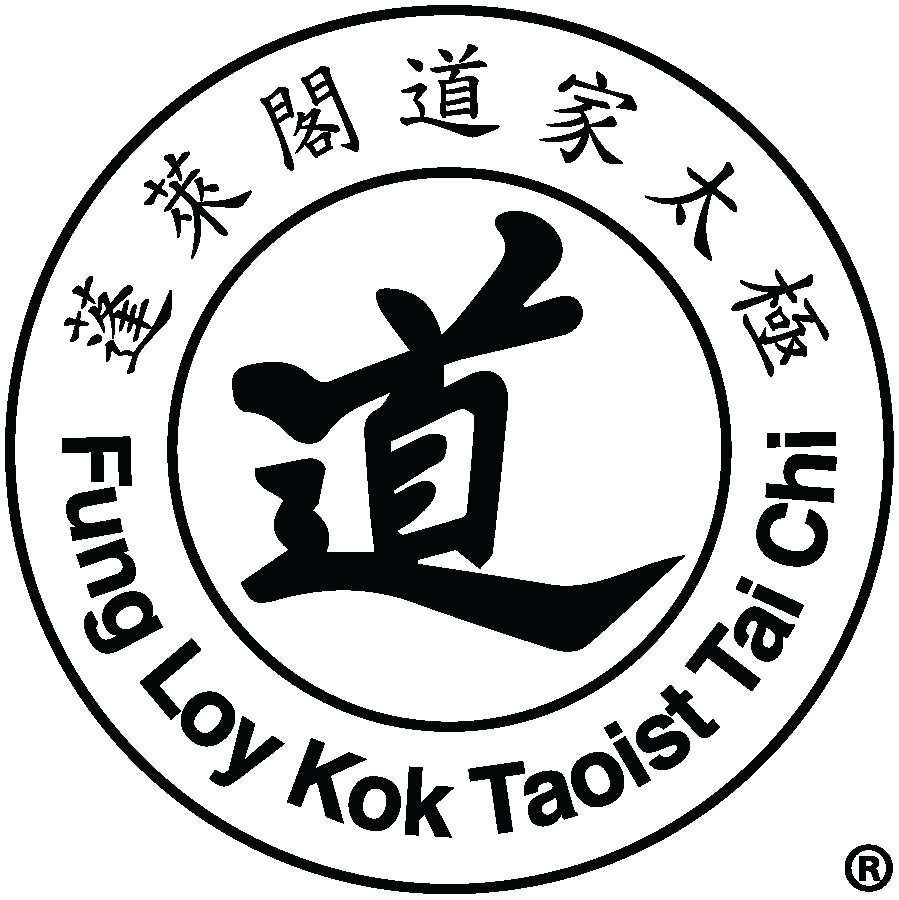Privacy Policy
1. General
Fung Loy Kok Institute of Taoism (the “Institute”) is committed to respecting your privacy rights and complying with Canada’s privacy laws. This Privacy Policy outlines its policy and practices on the collection, use, disclosure and retention of personal information about donors and participants (as defined below).
2. Definitions
“collection” means gathering, acquiring, noting or obtaining by any other means.
“consent” means giving permission for the collection, use, disclosure and retention of personal information for certain purposes. Consent can be either express or implied and can be given orally, electronically or in writing. Implied consent is consent that can be reasonably inferred from an action or inaction.
“disclosure” means transferring, or otherwise making available, to someone else.
“donor” means an individual who donates money or securities to the Institute or has indicated to the Institute an intention to donate.
“participant” means an individual who is a current or former participant or volunteer in the Institute’s activities such as Taoist Tai Chi® practice.
“personal information” means any information, recorded in any form, about an identifiable individual.
“retention” means storage.
“use” means treatment, handling and management.
3. Accountability
The Institute takes seriously its responsibility to protect the personal information in its possession. The Institute is accountable to participants and donors to adopt and regularly review its privacy practices to ensure they align with reasonable business practices appropriate to the level of sensitivity to safeguard personal information against loss or theft, unauthorized access, alteration or disclosure. Where the Institute chooses to have certain services, such as data or payment processing, provided by third party service providers, the Institute selects the service provider carefully. The Institute takes all reasonable precautions to ensure that the service providers protect personal information.
4. Identifying Purposes
The Institute collects, uses, discloses and retains personal information only for certain purposes that it identifies to you. The purposes for which personal information is collected will be identified to you at or before the time the personal information is collected. With your knowledge and consent, the Institute collects information about you for the following purposes:
● to establish your identity;
● to administer your involvement with the Institute, including your donations, event participation and volunteering and to contact you about your continued involvement;
● to respond to your information requests; and
● periodically to send you information on the Institute or invite you to events that are aligned with your interests.
5. Consent
When an individual chooses to become a donor or participant, they consent to the Institute’s collection, use, disclosure and retention of their personal information in accordance with this Privacy Policy. The Institute may seek additional consent where required by law or in situations where it considers further consent to be necessary or appropriate. An individual is free to refuse or withdraw their consent to the collection, use, disclosure or retention of their personal information at any time upon reasonable notice in writing to the Institute subject to legal or contractual restrictions. A donor or participant may decline to give the Institute their personal information but this decision may hinder the Institute’s ability to process the donor’s or participant’s online payment.
6. Limiting Collection, Use, Disclosure, and Retention
Collection: Personal information is only collected directly from the individual concerned. The Institute only collects information directly from the individual explicitly, generally through the filling out of an on-line web or paper form. This form will at least refer to this Privacy Policy and/or specifically identify (thereby giving notice of) the purposes for which the Institute is collecting personal information.
Use: The Institute uses the personal information provided by participants and donors in accordance with the purposes identified in section 3 above. These purposes include: (a) managing the Institute’s relationships with participants through assisting participants in performing their volunteering roles and responsibilities, and keeping them informed about relevant Institute activities; and (b) managing the Institute’s relationship with donors through processing donations, issuing tax receipts, confirming renewal of giving, maintaining a donation history, keeping donors informed about giving opportunities, and complying with legal or regulatory requirements.
Disclosure: The Institute does not sell, trade or rent to third parties any personal information it collects. In certain rare circumstances, the Institute may be obliged to disclose personal information without consent where required by law or by order or requirement of a court, administrative agency or other governmental tribunal. Where the Institute is legally obliged to disclose personal information without consent, it will not disclose more personal information than is legally required in the circumstances.
Retention: The Institute retains personal information as long as necessary for the fulfillment of the identified purposes for its collection or as otherwise necessary to comply with applicable laws. When personal information is no longer necessary or relevant for the identified purposes, or is required to be retained by applicable laws, the Institute will take steps to have it deleted, destroyed, erased, aggregated or made anonymous. The Institute uses reasonable business practices to ensure it has adequate controls, schedules and practices for information and records retention and destruction which apply to personal information.
7. Accuracy
The Institute endeavours to ensure that any personal information provided to it by participants or donors is as accurate, current, and complete as necessary in order to meet the reason for which it was obtained.
8. Safeguards
The Institute protects the personal information it collects by security safeguards appropriate to the sensitivity of the information. The methods of protection include (a) physical measures such as locked filing cabinets and restricted access to offices, (b) organizational measures such as security clearances and limiting access on a need-to-know basis, and (c) technological measures such as the use of password and encryption. The Institute makes its employees aware of maintaining the confidentiality of personal information. The Institute also takes care in destroying personal information to prevent unauthorized parties from gaining access to it.
9. Openness
By posting this Privacy Policy on the Institute’s website, the Institute makes available to individuals specific information about its policies and practices relating to the management of personal information. If you are unable to access the Institute’s website or require the Privacy Policy in another format, please contact the Institute’s Chief Privacy Officer at the address set forth below in section 11 and the Institute will do its best to provide the Privacy Policy to you in a format that meets your requirements.
10. Individual Access
For active participants of the Institute, participants are provided with direct online access to their personal information through a “Participant Access System” which may be used anytime by the participant to view, change or delete personal information.
In the event that an individual is not an active participant or is otherwise unable to, or does not wish to, access their personal information through the Participant Access System, the individual may request access to and review of personal information about themselves that is in the possession of the Institute. Access will be provided within a reasonable business timeframe at no or minimal cost to the individual unless access is declined for one of the reasons described below. The Institute will need to confirm your identity prior to disclosing any personal information to you. The Institute reserves the right to decline access to personal information where:
- the identity of the person requesting access cannot be confirmed;
- the personal information is not readily retrievable and the burden or cost of providing it would be either prohibitive or unduly disproportionate to the nature or value of the information;
- the requested personal information does not exist, is not held, or cannot be found;
- disclosure of the personal information would compromise the confidentiality or commercial proprietary interests of another person or threaten the safety of another person;
- non-disclosure of the personal information is required by law; and
- the information is subject to solicitor-client or litigation privilege.
Requests to Correct or Delete Personal Information: An individual may request that the Institute correct or delete personal information about themselves that is in the Institute’s possession. Where an individual successfully demonstrates the inaccuracy or incompleteness of personal information, the Institute shall amend the information as required. The Institute will make reasonable business efforts to comply with a request to delete an individual’s personal information as long as technological restraints or legal constraints do not limit its ability to fulfill the deletion request. Where a request for access, alteration, or deletion of personal information is declined, the Institute will provide the individual making the request with the reasons for declining the request.
11. Contact for Questions or Complaints
The Institute has appointed a Chief Privacy Officer who is responsible for this Privacy Policy and the Institute’s compliance with it. In the event of questions or complaints about: (i) access to personal information; (ii) the collection, use, disclosure or retention of personal information by the Institute; or (iii) this Privacy Policy, please contact the Institute, Attention: Chief Privacy Officer by email at Contact Us or by mail at Fung Loy Kok Institute of Taoism, 134 D’Arcy Street, Toronto, Ontario, M5T 1K3. The Institute will investigate all complaints. Where a complaint is found to be justified, the Institute will take appropriate measures, including, if necessary, amending its policies and procedures.
12. Changes
The Institute may, at any time, without notice to you and in its sole discretion, amend this Privacy Policy from time to time. The most current version of this Privacy Policy is found on the Institute’s website. Please review it periodically.
Updated Dec 2022
Trade-Mark Notice: TAOIST TAI CHI is registered Canadian trade-mark of Certmark Holdings Co. Ltd. and is used by the Institute with permission/under license.

